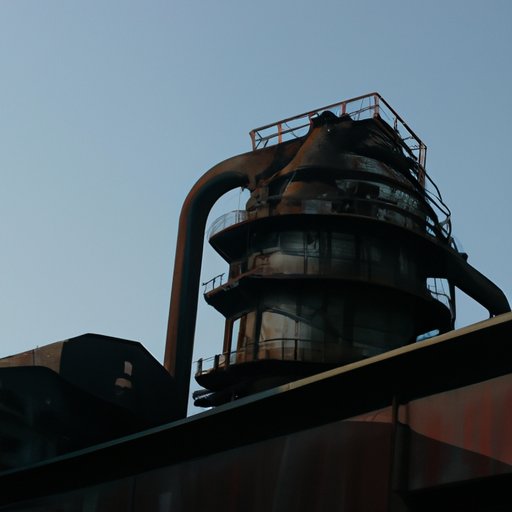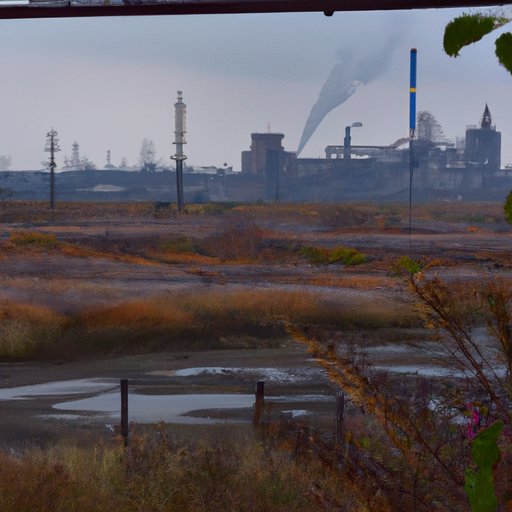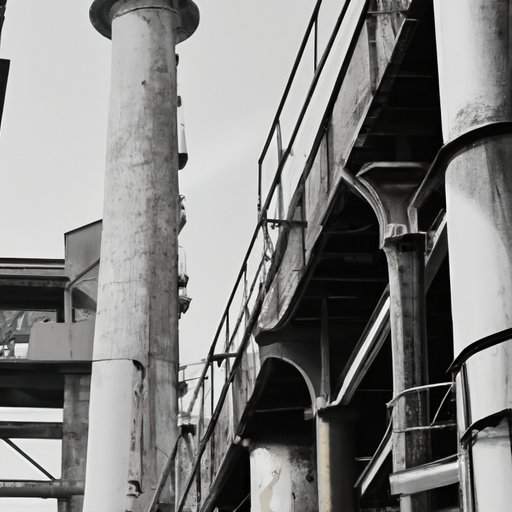Introduction
Industrial culture is a term used to describe the transformation of a society from an agrarian or pre-industrial economy to an industrialized one. This shift has had a profound effect on the way people live, work, and interact with each other. In this article, we will explore the history of industrial culture, the impact of industrialization on societies, and the advantages and challenges associated with it. We will also examine industrial culture through a global lens, comparing different forms of industrialization and analyzing the effects of industrialization across borders.

A History of Industrial Culture
The origins of industrialization can be traced back to the 18th century, when the first mechanical looms were developed. This marked the beginning of the Industrial Revolution, which saw the transition from manual labor to machine-based production. The introduction of new technologies, such as the steam engine, enabled the mass production of goods, leading to increased efficiency and lower costs of production. As a result, many industries flourished and cities grew rapidly.
Since then, industrialization has continued to evolve and shape modern society. In the 19th and 20th centuries, new technologies such as electricity, computers, and robotics revolutionized production processes and ushered in the era of automation. Today, industrialization is still the driving force behind the global economy, with countries around the world relying heavily on manufacturing and other industrial activities.
Understanding the Impact of Industrialization
The effects of industrialization have been far-reaching, both positive and negative. On the one hand, industrialization has brought about unprecedented economic growth and prosperity. It has led to increased productivity, higher wages, and improved living standards for many people. In addition, it has opened up new markets and created jobs, allowing people to pursue new opportunities.
On the other hand, industrialization has resulted in environmental degradation, air and water pollution, and other negative consequences. It has also led to the displacement of traditional communities and cultures, as well as an increase in inequality between the rich and the poor. Furthermore, the widespread use of machines has led to an increased sense of alienation and a decrease in job satisfaction for many workers.
Exploring the Benefits and Challenges of Industrial Culture
Despite the challenges posed by industrialization, there are several advantages to be gained from it. For instance, industrialization has made it possible for goods and services to be produced more quickly and efficiently. This, in turn, has helped to reduce prices and make products more accessible to consumers. Additionally, industrialization has enabled countries to become more competitive in the global market, allowing them to export goods and services and thus create wealth.
However, industrialization has also created numerous challenges. One of the most pressing issues is the strain it places on natural resources, as manufacturing processes often require large amounts of energy and raw materials. In addition, industrialization has caused air and water pollution, leading to health problems and environmental damage. Finally, the demand for labor has decreased, resulting in job insecurity and increased competition among workers.

The Relationship Between Industrialization and Society
Industrialization has had a profound impact on society. It has changed the way people interact, work, and live. In particular, it has led to the emergence of new social structures, such as the factory system and the rise of corporate capitalism. Additionally, it has caused a shift from rural to urban living, as more people moved to cities in search of better employment opportunities.
In addition, industrialization has resulted in increased levels of inequality. The wealthier classes have benefited more from industrialization than the poorer classes, leading to a widening gap between rich and poor. Furthermore, industrialization has led to the exploitation of workers, as employers have been able to pay lower wages and provide fewer benefits.

Examining Industrial Culture Through a Global Lens
Industrialization has taken on different forms in different parts of the world. In some countries, such as the United States, industrialization has been largely driven by technological advances. In other countries, such as China, industrialization has been fueled by government policies that have encouraged investment and growth. Examining these differences can help us gain a better understanding of industrial culture and its effects on global economies.
Furthermore, it is important to consider how industrialization is affecting different regions of the world. In some areas, industrialization has resulted in economic development and improved living standards. In other areas, however, it has caused environmental degradation, displacement of communities, and increased inequality.
Adapting to the Changes of Industrial Culture
Given the complexity of industrial culture and its impacts, it is important to take steps to prepare for future changes. Governments should develop strategies to manage the effects of industrialization and ensure that the benefits outweigh the costs. Additionally, businesses should invest in research and development to stay competitive and remain at the forefront of technological change. Finally, individuals should strive to become more informed and engaged citizens, so they can better understand and adapt to the changing landscape of industrial culture.
Conclusion
Industrial culture has had a profound impact on societies around the world. It has brought about unprecedented economic growth and prosperity, yet it has also caused environmental degradation, displacement of communities, and inequality. It is essential to understand the advantages and challenges of industrialization in order to prepare for future changes in industry. By exploring industrial culture through a global lens and taking steps to adjust to its effects, we can ensure that its benefits outweigh the costs.
(Note: Is this article not meeting your expectations? Do you have knowledge or insights to share? Unlock new opportunities and expand your reach by joining our authors team. Click Registration to join us and share your expertise with our readers.)
